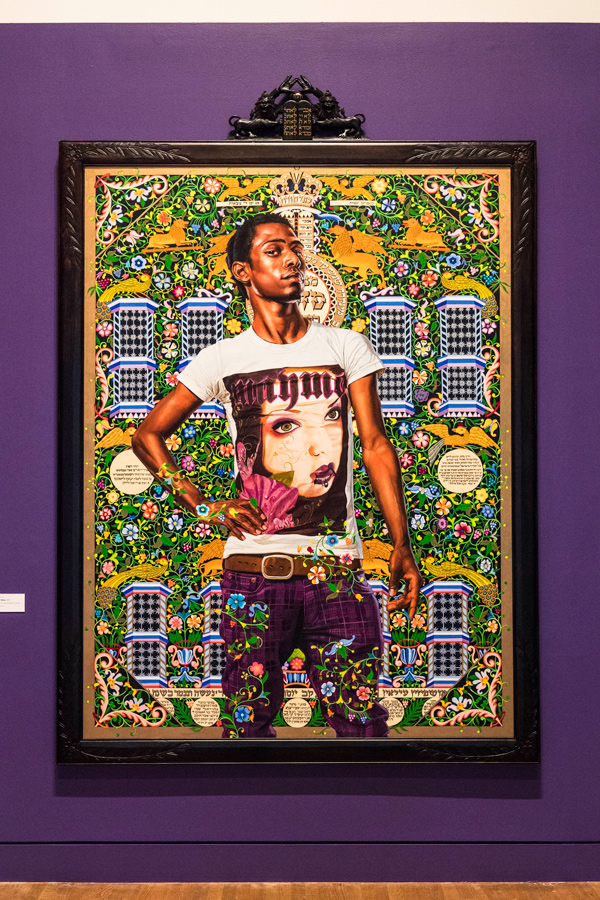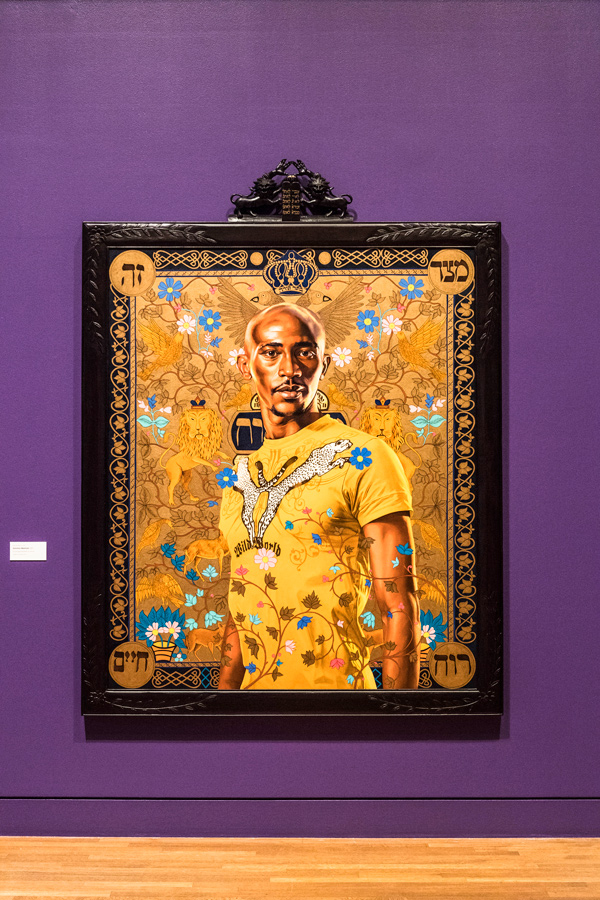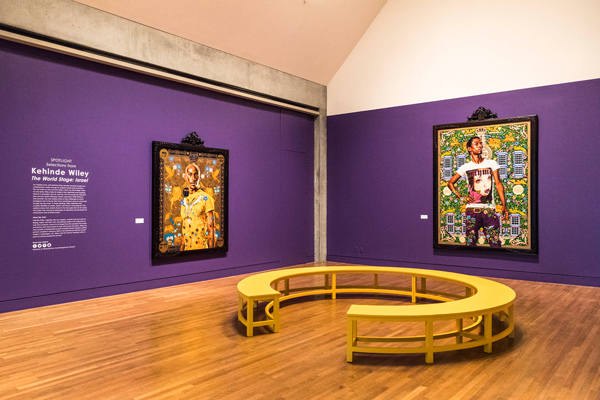“Spotlight—Selections from Kehinde Wiley’s The World Stage: Israel” is small, but splendid. The exhibit attracts through its display of exuberant colors, masterful artistic skill, and political relevance. It consists of two large-scale paintings from Wiley’s “World Stage” series and an eight-minute video, which informs the viewer about the situation of Ethiopian Jews in Israel, who are striving for equality.
Wiley, who was born in South East LA, is the epitome of the postmodern artist, who applies parody and pastiche. Inspired by classical European portrait paintings of the aristocracy and the works of the African American artist Kerry James Marshall, he borrows a style from the past and integrates elements of pop culture to create a vision of a future, in which the social roles are reversed.
Hence, in contrast to old Master paintings, his heroes are not the upper class of European descent, but two young men from the Ethiopian Jewish community in Tel Aviv and the nearby Jewish-Arab city Lod, who have a love for hip hop.

Kehinde Wiley, Benediter Brkou (2011). Oil and gold and silver enamel on canvas. Collection of Danny First. Photo by Timothy Norris. Courtesy of the Skirball Cultural Center.
In Benediter Brkou (2011), the sitter is portrayed against a decorative background in bright green, light blue, pink and yellow with his right hand resting on his hip. He’s wearing a pair of sagging purple pants and an imprinted T-shirt, characteristic of hip hop fashion. His face is shown in half-profile with his eyes looking down at the viewer. In this position, he appears proud, a bit arrogant and ready for anything.

Kehinde Wiley, Solomon Mashash (2011). Oil and gold enamel on canvas. Collection of Danny First. Photo by Timothy Norris. Courtesy of the Skirball Cultural Center.
In contrast to Benediter Brkou, in Solomon Mashash (2011), only the torso of the sitter—who wears a yellow T-shirt with the imprint of two leopards—is shown. In this painting the sitter’s gaze is eye level. Similar to the first painting, a crown hovers over the man’s head. The golden decorative background surrounded by Hebrew letters is filled with images of birds, lions, and flowers whose stems are partly overlapping his clothes and arms.
Considering the political situation of Jewish Ethiopians in Israel, the paintings imply that the two Ethiopian hip-hoppers identify with the discrimination experienced by African Americans and demand social justice in their adopted country, a multicultural society, which they now have become part of.
Spotlight—Selections from Kehinde Wiley’s The World Stage: Israel, March 20 – September 2, 2018, at Skirball Cultural Center, 2701 N. Sepulveda Blvd, Los Angeles, CA 90049. www.skirball.org


